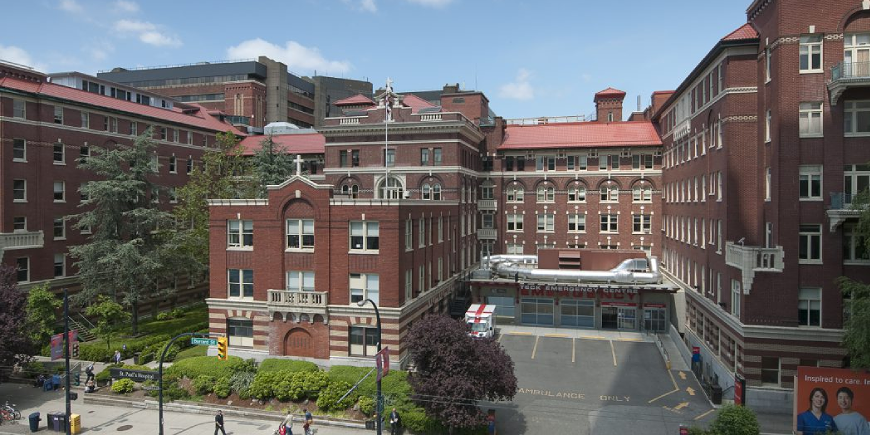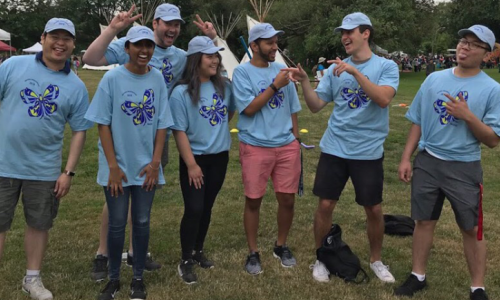
For the past four months I worked at Providence Health Care Research Institute and I was focused on Transplant Research. I was placed in the Nephrology (kidney) department, where I conducted a survey study. My role required me to travel and work with patients face to face.
There was a lot to learn during my co-op, and in this article I share a few important lessons I learned from this journey.
The Study
I was responsible for researching patient opinions on living donor transplantation and transplantation outside of Canada. Do patients know eligible kidney donors? If so, do patients ask these people to be their living donors? If not, what prevents them from asking?
The second component of the study is regarding transplantation in another country. Do patients know the risks involved to receive kidney transplants outside of Canada? Do patients know the legal and medical consequences? The study also asks questions about transplant commercialism, which involves paid living donors and living donors that are forced into donating. Do patients know anything about this?
In this study responses remain anonymous, so patients are free to be honest.
Practice Makes Perfect
Before I approached patients, my supervisor and I spent some time going over the survey. We made sure we knew the meaning of the questions and how to explain it clearly to patients if they asked to clarify. We role-played to find the best way to approach patients and edited our introductions of the study. We spent hours in the over air-conditioned meeting room, trying to get our introductions perfectly rehearsed. Similar to an elevator pitch, the introduction is approximately 30 seconds long and during those 30 seconds, the goal is to entice patients to participate in the study.
Travelling
Once my survey introduction was perfectly rehearsed I had to travel to the patients. I travelled to different dialysis units around the Lower Mainland (patients are on dialysis because they lost kidney function). I also travelled to St. Paul’s Hospital and Vancouver General Hospital to see patients on hemodialysis (hemodialysis is a type of kidney dialysis that uses a dialysis machine to replace the functions of the kidneys). From time to time, I would also journey to see patients in Royal Columbian Hospital, Surrey Memorial Hospital, and their community dialysis centers.
Firsts on the Job
The first time I went into the dialysis unit in St. Paul’s Hospital, the dialysis machines immediately caught my eye. I was able to see the blood going from the patient’s arm, into the tube, feed into the machine, and watch the blood flow through the machine. I was shaken by the image, but after some time I got used to the sight. The second thing that caught my attention was the patients. Some patients were sitting up but some patients were lying on beds. Many of the patients were watching television or sleeping.
Another important first was the first time I completed a survey with a patient. Before we started the survey, he was watching the news regarding Great Britain’s politics. We had a brief conversation regarding that and compared it to the Canadian political system. I was nervous at the beginning, but as the survey continued, I felt more comfortable and the butterflies in my stomach disappeared. At the end of the survey, the patient thanked me for my time. He said that each dialysis run lasts for four hours, and he enjoyed the social interaction. From that experience, I learned to enjoy my time with the patients. Some patients enjoy telling stories of their life and experiences. It may take longer to complete the survey, but it is a rare occurrence that a stranger is willing to share a piece of their past. Their stories were memorable and I appreciated how open they were with me.
A Glimpse Into Patients’ Lives
The study asks many sensitive questions, and I saw a glimpse into the patients’ relationships with their family and friends. For instance, I have had conversations with patients who are not in contact with their family members. I’ve also spoken to patients who would not tell their children of their current condition because they do not want them to be worried. Not only was there a difference in how the patients would interact with their families but how they viewed kidney donations. There are patients that are willing to accept their children’s kidney donation, but some patients would rather face death than accept their children’s offers.
Always Learning
Co-op is a great way to learn something new. I have learned more about health care and clinical research. I made mistakes and I will keep making mistakes. However, these mistakes are learning opportunities that will help me progress in my career.













